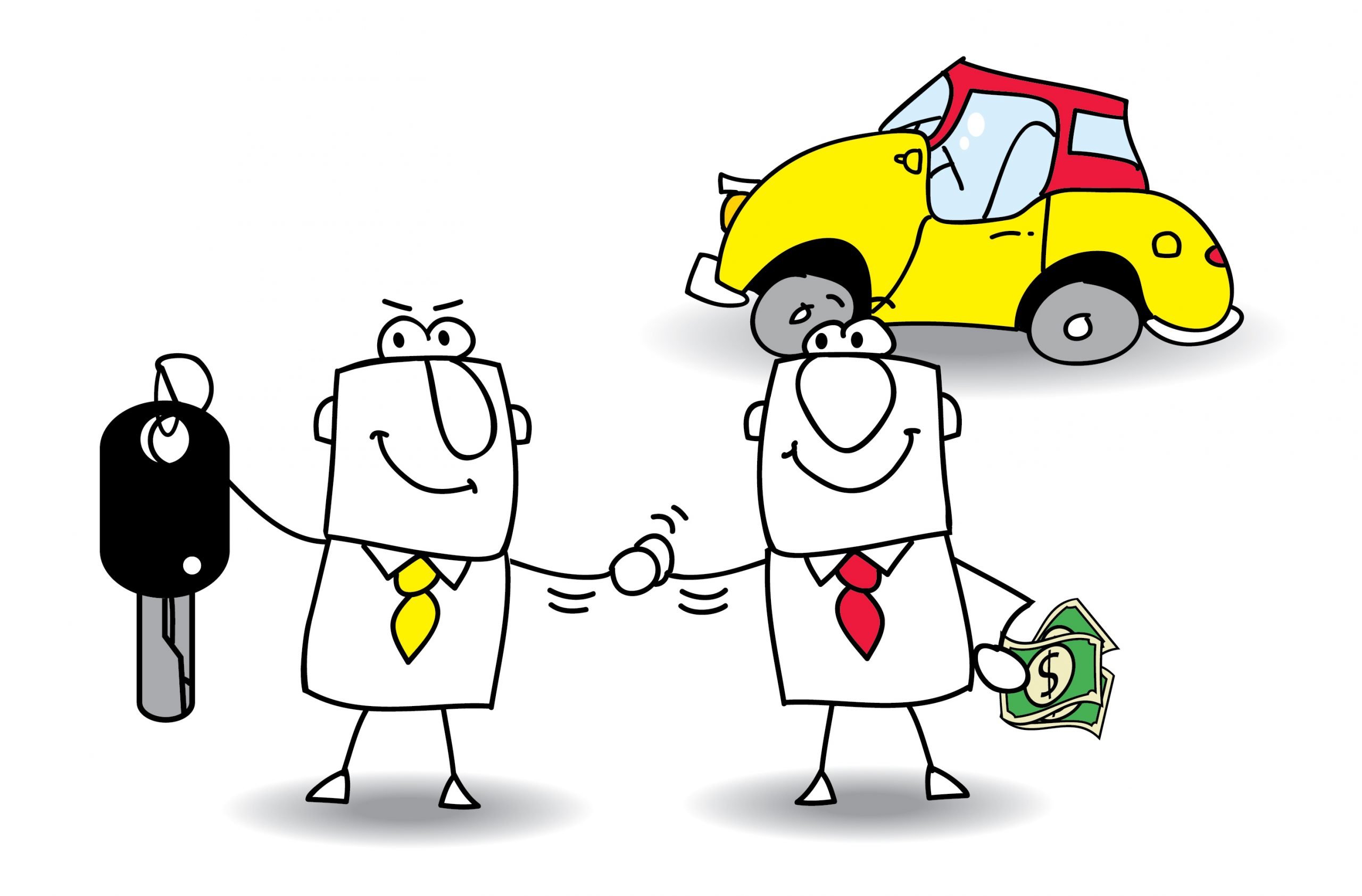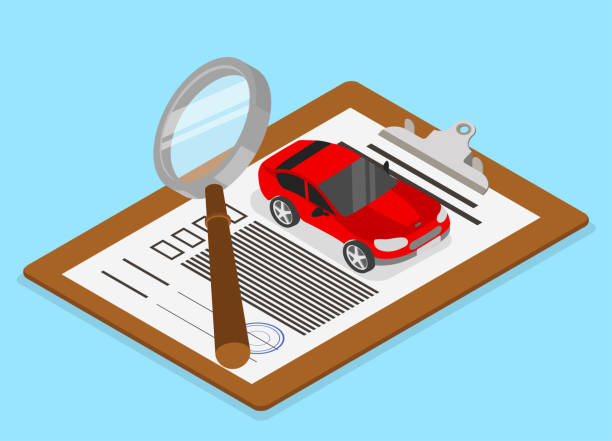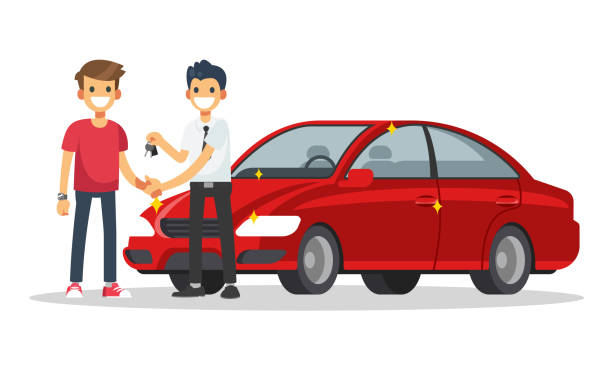How To Protect Yourself If You Buy/Sell A Pre-owned Car Privately?
Posted on January 3, 2022
Updated Aug 31, 202 9am ET
How do you buy/sell a used car privately in Ontario
Before we get to the details on what you should know if you want to sell your car privately, we do need to acknowledge that this can be dangerous, and your best option is always to sell to a dealership. Dealers are bound by laws and regulations that will protect consumers, and you don't have to worry about fraud or your car getting stolen. There have been many scams where someone leaves their ID with the owner and goes on a test drive, never to return with the car. Fake IDs are quite sophisticated and can easily fool us. In other cases, people who have accompanied a prospective buyer have been harmed when they've gone on the test drive. Selling to a dealer like CarHub is safe and so much easier. That said, let's talk about how to protect yourself.

If you are the private seller in Ontario – here’s some tips for selling your car – even if the buyer is using a loan:
- Learn all the things you need to do as a private vehicle seller! I know, you’re probably thinking, “that’s exactly what I am trying to do, that’s why I am here” and you’re right! If you are already here and reading this, you’ve started step one! What I really mean by this, is review the Ontario website where they clearly outline all of the paperwork-type items that you need. Here’s a checklist to help:
-
-
- Buy a Used Car Information Package Here
-
-
-
- Prepare a Bill of Sale (VIN, make/model/year/power source/body type/colour, purchase price, your name/address/signature, buyers name/address, sale/purchase date)
-
-
-
- Application for Transfer (found on back of ownership in vehicle portion)
-
- Find Out What Your Used Car is Worth! There are many online support tools you can utilize for a valuation (Kelley Blue Book and Canadian Black Book to name just a couple). While these website tools can give you an idea of your vehicle worth, a true and accurate price involves a number of factors that these online tools do not always consider (vehicle condition/damages, history and so on). This is why the best and fastest way to get the value of your vehicle is to reach out to a trusted dealership and have a qualified person provide an accurate price. You can verify it after by checking out other used cars for sale in your area. Keep in mind that at first glance a vehicle may appear to be the same, but there are different factors that contribute to its value including mileage, accident history, overall condition and features on a vehicle.
- Plan the Meet Up! This is the tricky part. Pick a public place, like a mall or grocery parking lot. Plan on whether you would like to have the potential buyer test-drive the vehicle with you in it or without you. If you plan on allowing them to go without you, clearly discuss with the potential buyer your expectations – consider asking them to leave something important with you, like an agreed upon amount of money or their firstborn (just kidding). Do keep in mind that there are some very convincing fake IDs out there, so don't settle on just one ID. That could be their carefully crafted fake ID. Remember that meeting someone you do not know carries risk to your personal safety as well as theft and you should take appropriate precautions. Make sure you’ve informed people where you are and it's always advisable to have friends/family with you, so you're not alone.
- Get Your Cash! Oh and don’t forget to take your license plates (and keep the plate portion of the ownership)! After providing the buyer with all the necessary paperwork outlines in (1), it’s time to get your money. Regardless of whether they choose to pay you in cash, e-transfer, certified cheque or other agreed upon method, you should be paid in full. If they require a loan to purchase your vehicle, it is their responsibility to work out those details (and they will be outlined below, so feel free to direct them here).
Which of course brings us so very cleverly to our next topic…
You’ve done your research, you know the car you want and have scoured all the online used car sites and found a handful of – or maybe just one – option(s), now what? Planning to buy a used car privately from a private seller? Here are some tips on how to purchase a vehicle privately – even if you need a loan!
- Gather all the information you can on the vehicle you are interested in! “Well obviously”, you say – but what are the things you actually should know about before you buy a used car privately?
- Check for vehicle history and ask the seller about maintenance records
- Make sure the VIN on the vehicle matches the VIN on the owners permit (and on any other paperwork the seller provides)
- Request they show you the Used Vehicle Information Package – ensure there is no money owing/lien on the vehicle
- Look over the vehicle, inside and out, for signs of damage and/or request your mechanic looks over the vehicle
- Confirm the vehicle is a fair, or better yet an excellent price (use online sources like Canadian Black Book and/or find comparable vehicles for sale if applicable)
- Get Your Money in Order! You might be wondering, “how do I finance a car from a private seller?” – it’s actually quite simple! Getting a loan for a privately sold car is similar to any personal loan: you can go to a bank, credit union or a loan specialist – there are even loan options for poor credit. Once you have secured your finances, discuss with the seller the method of payment and be sure to reduce the risk of theft or fraud (more on that next).
- Plan a Meet-Up and Test Drive! Pick a public place like a parking lot of a mall or grocery store and bring a friend or trusted advisor. If you are paying with cash, have it in a secured location and only produce it when you have all of the seller’s paperwork (including the Bill of Sale). Other methods of payment that reduce risk are certified cheques and e-transfer (note: daily amount limits could restrict the ability to use e-transfer). Discuss whether you will be test driving the vehicle alone and/or with the seller – this is especially where it helps to bring a friend as a seller will be more comfortable with you taking their vehicle for a ride if you’ve left someone behind.
- Get What You Came for! If you decide you want this vehicle, make sure the seller provides you with the following:
- Signed Bill of Sale
- Used Vehicle Information Package
- Vehicle portion of the owner’s permit (with the completed portion on the back)
- The keys (hey I know it sounds obvious, but you’d be surprised)!
- Go and Register Your New Used Privately Sold Car! Take all of your paperwork noted above, plus your proof of insurance, driver’s license and the current odometer reading to a Service Canada and complete the transfer of ownership. Congratulations – you just bought a Car!
Benefits of Buying/Selling a Used Car at a Dealership
While there are guides and instructions on how to minimize the risks of buyer/selling a car privately like those listed above, the lowest risk is in choosing to sell or trade-in your vehicle at a trusted dealership. Dealerships deal with all of the paperwork for you and you don’t need to worry about theft, fraud (or worse) during a meet up with a stranger. The Automotive Specialists at a Dealership know what the car is worth and can offer expert advise. They can help get the lowest interest loan if you are the buyer and can save you lots of time if you are the seller – it’s really win-win for all!
Contact us at CarHub with any questions on buying/selling your vehicle or to set-up a time with one of our trusted Product Advisors.
-Sharon Pinfold-
Sharon has been in the auto industry since 2005 and has worked both in the Sale and Service Department of various New, Used, Domestic and Import brands.



